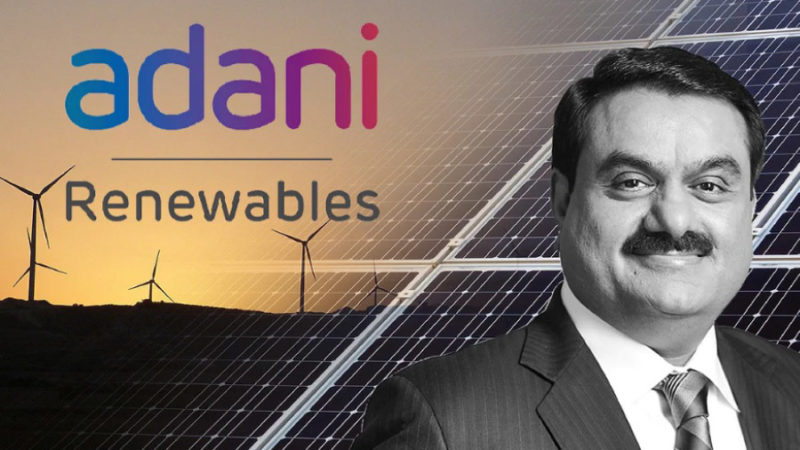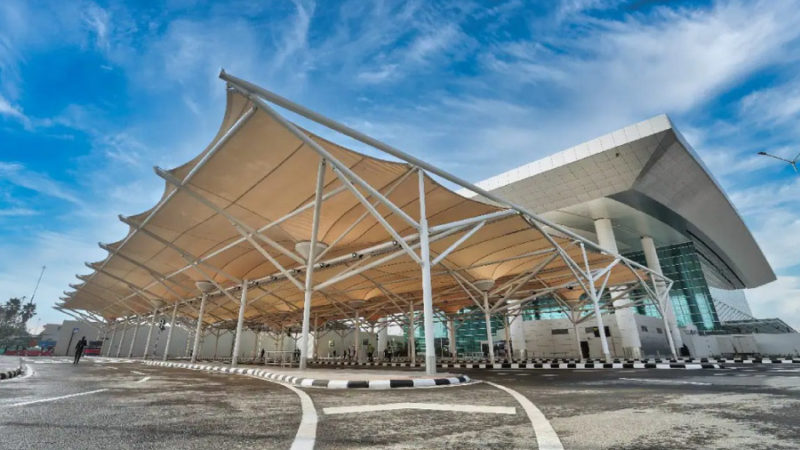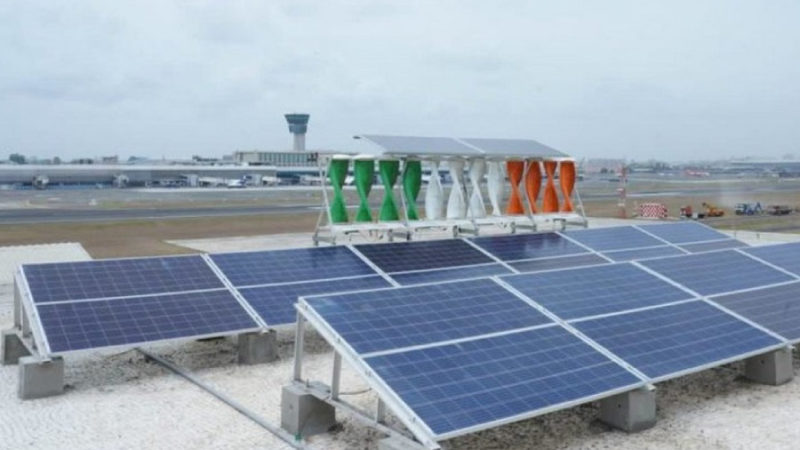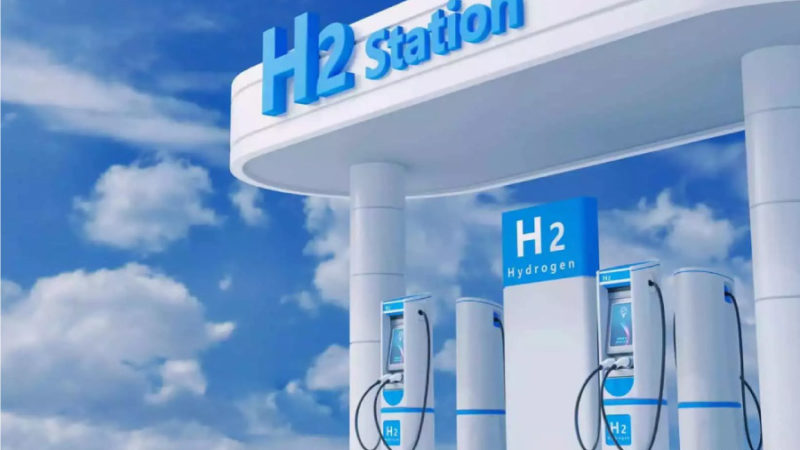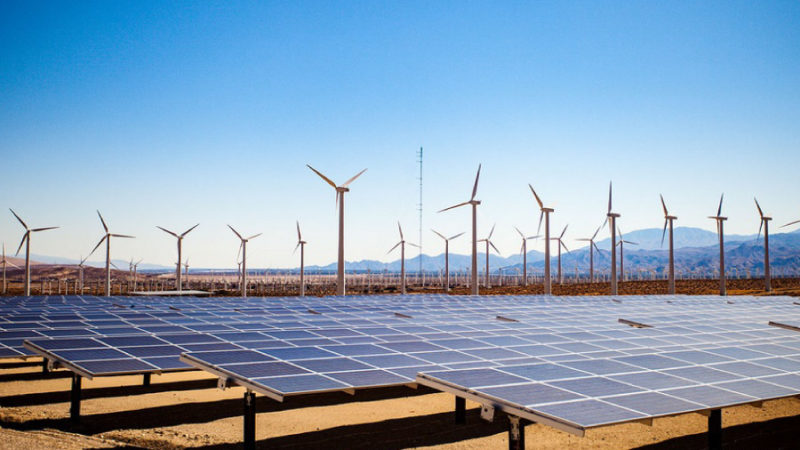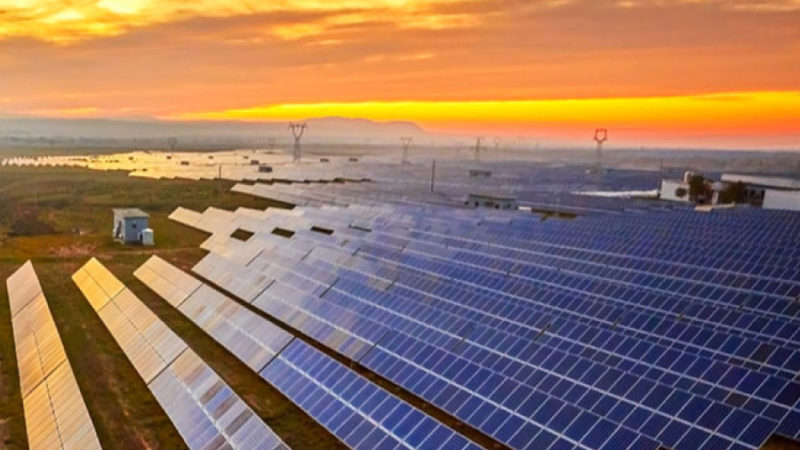Budget 2022-23: Power and Renewable Industry Reactions
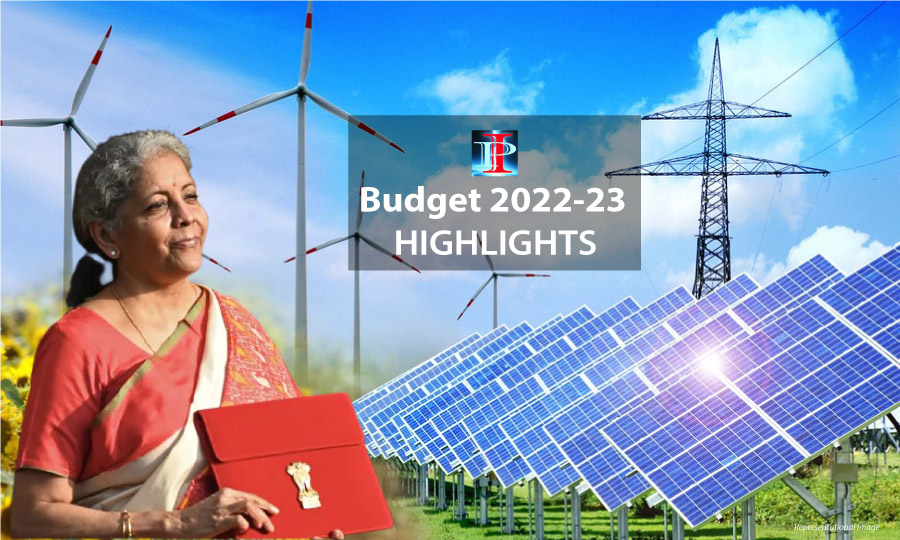
Budget 2022-23 was overall applauded by the corporate sector, industry bodies, and experts while welcoming the nation’s commitment towards clean energy transition.
On February 1, 2022, Nirmala Sitharaman, the Finance Minister, unveiled the Union Budget 2022-23, which contains a number of provisions to support the country’s clean energy sector.
An array of far-reaching reforms were outlined in the much-anticipated budget speech. The most important one was PLI scheme to support manufacturing solar cells and modules here at home. Additionally, as per the fine print in the Budget, basic customs duty will increase to 40 percent on imported solar modules from 1 April 2022.
Moreover the budget also included swapping of batteries for EV sector, blending biomass pellets with thermal fuel and issuing green bonds.
Industry Leaders while applauding the Union Budget 2022-23 expressed their opinions and its impact therein…
Sanjeev Aggarwal,
Managing Director and CEO, Amplus Solar
“The budget announcements have been fairly progressive, laying out the framework for the emerging requirements of the energy sector. The policy announcements in the energy storage sector like battery swapping framework, battery as a service, and storage being part of the infrastructure will surely help get the right traction to this essential component of the green energy ecosystem.
The government has also further pushed the agenda of Make in India with PLI enhancement of Rs.195,000 million for solar module manufacturing, and we should expect more companies to benefit from this. Similarly, other forward-looking measures like biomass palletisation, energy efficiency, and coal gasification will help in reducing our fossil fuel dependence.
The government proposal to raise funding from sovereign green bonds is a well-timed one that can help in reducing the cost of borrowings. Similarly, allowing states to have an additional 0.5% fiscal deficit to power sector reforms will go a long way in strengthening the ailing distribution sector.”
Bharat Bhut,
Cofounder and Director, Goldi Solar
“Budget 2022 has given indigenous manufacturers several reasons to cheer. Implementing 40 per cent BCD on solar modules and the additional allocation of Rs 19,500 crore for PLI for solar PV module manufacturing will ensure the growth of the entire domestic manufacturing ecosystem. The application requirements should be tweaked to ensure that MSMEs also benefit from the scheme. All of these measures will result in a more robust domestic module supply, increased confidence in Indian solar modules and reduced reliance on imports while furthering our aim to achieve an Atmanirbhar Bharat. As a next step, the government needs to define measures to be taken in the R&D space to foster innovation and help companies stay ahead of the technology curve.”
Tejas Kusurkar,
Co-founder and CEO, Offgrid Energy Labs
“Budget 2022 has laid a strong emphasis on promoting digital and technological innovations across sectors. The three identified focus areas of technology led development, energy transition and climate action will create a conducive environment for deep tech innovators operating at the intersection of technology and energy to flourish in the country. An allocation of Rs 19,500 crores towards solar energy PLI schemes will spur large-scale demand for the next level of stationary-energy-storage capacities. This will unravel an entirely new ecosystem comprising of battery technology innovators, energy storage platforms, as well as manufacturers and service providers across the energy value chain. At Offgrid Energy, we are particularly excited at prospects unfolding for deep tech companies in the energy storage space.”
Animesh.A.Damani,
Managing Partner, Artha Energy Resources
“The sheer inclusion of Renewable Energy (RE) and cleantech in the Budget 2022-23 speech by the hon’able FM is a clear indicator of the increased prominence that the RE segment has had in the last few years! The sector has grown by leaps and bounds, thus establishing a formidable position.
The focus on EV and Energy Storage Solutions (ESS) is clearly the need of the hour. The introduction of battery swapping initiative is in line with our expectation for a while. Interoperability of energy storage is going to revolutionise the consumption of RE in India. It is not only going to improve logistics for EV users, but also create a micro-economy – that will create budding entrepreneurs in the segment.
Moreover, the hon’able FM has granted Energy Storage Solution (ESS) and grid scale battery system an ‘infrastructure’ status, which has been done largely to boost demand. This move is bound to attract better financing options for the said segment, increase scalability, which in-turn will eradicate the barrier of DISCOMs not opting for RE power on account of intermittent supply.
On the accountability front, I truly hope that the forward-looking move by the Central govt ministry to introduce end-to-end online e-Billing system is trickled down and implemented at central agencies such as SECI and IREDA. This will better the payment cycles and improve the financial standing of the power generation companies”
Gautam Mohanka,
Managing Director, Gautam Solar
“The Indian renewable energy industry, notably the solar sector, must applaud the Indian government’s efforts to promote green energy during the last decade, especially during the pandemic. The appropriations in the most recent budget strongly emphasize renewable energy, energy efficiency, electric mobility, data centers, building efficiency, grid-connected energy storage, and green bond assistance, which is a terrific development. Following India’s broader global commitment to fighting climate change, the 2022 budget emphasizes allowing energy transition through provisions to boost local manufacturing of solar power equipment and batteries. The basic customs duty (BCD) of 25% has been imposed on imported solar cells and 40% has been imposed on solar modules by the Ministry of New and Renewable Energy (MNRE) recently which will be effective from 1st April, 2022. This will discourage Chinese imports of solar panels and solar cells to a great extent, giving further boost to the ‘Make in India’ mission of the Government of India.
It’s a wonderful move as the risks of climate change are the strongest negative externalities that affect India and other countries. As the Hon’ble Prime Minister said at the COP26 summit in Glasgow last November, “what is needed today is mindful and deliberate utilization, instead of mindless and destructive consumption.” The low carbon development strategy as enunciated in the ‘panchamrit’ that he announced is an important reflection of our government’s strong commitment towards sustainable development.
In addition, To facilitate domestic manufacturing for the ambitious goal of 280 GW of installed solar capacity by 2030, an additional allocation of ` 19,500 crore for Production Linked Incentive for manufacture of high efficiency modules, with priority to fully integrated manufacturing units from polysilicon to solar PV modules, will be made. This initiative is expected to produce 60 lakh new employment and an extra 30 lakh crore jobs over the following five years, which is recommendable.”
Raman Bhatia,
Founder & Managing Director, Servotech Power Systems Limited
The key decisions made on the renewable energy front illustrated in the Union Budget 2022 precisely address the most critical challenges halting India’s speedy transition to a clean new era. The allocation of additional Rs 19,500 cr to the Production Linked Incentive (PLI) for the development of high-efficiency solar modules, thoughtful policies & action plans, supporting incentives for green bonds would not only accelerate our pace to achieve the 2030 target of 280 GW of installed solar capacity but would also help deliver on the 2070 net-zero emissions target commitment made by PM Narendra Modi at the COP26 summit held last year in Glasgow and play a pivotal role in tackling the global crisis of climate change.
Gyanesh Chaudhary,
Vice Chairman and Managing Director, Vikram Solar
“The Union Budget 2022-23 is visionary and action oriented. The key measures announced in the budget towards enabling ease of doing business, climate action, digital economy, strengthening the start-up ecosystem, job creation and supporting industrial growth, will propel a strong growth momentum.
The Budget 2022 is growth focused with clear roadmap for infrastructure. The PM Gati Shakti master plan focusing on seven growth engines and four big priorities, including the energy transition and climate action will bring transformational changes and accelerate India’s green energy growth. The increase in capital expenditure by 35.4%, as a pump-priming measure, is a significant boost for employment generation.
We are glad the finance minister, continued to focus on enabling India’s clean energy transition. We welcome the additional PLI allocation of INR 195,000 million for manufacturing high-efficiency solar modules for the existing wait-listed PLI bidders. This will strengthen the domestic solar manufacturing ecosystem, thereby reducing our import dependence, creating jobs, attracting investments and enabling the Make in India vision. Additionally, the sovereign green bonds will boost green infrastructure development which will help in meeting India’s carbon emission reduction targets. Green bonds will also enable international yield curve for Indian corporates leading to better pricing for bonds. The battery-swapping policy with interoperability standards will boost the EV ecosystem.
As domestic solar manufacturers, we are appreciative of the government’s focus towards strengthening domestic solar industry by notifying the basic custom duties on solar modules and solar cell effective April 1, 2022. We are confident, with the implementation and roll-out of the measures announced in Budget 2022, we will move closer towards realizing the Aatmanirbhar Bharat vision in solar sector and India’s energy security through green power.”
S K Gupta,
Executive Director and CFO, Amp Energy India
“We sincerely thank the Finance Minister for unfolding another growth oriented budget which will drive the economy to high sustainable growth. The Budget 2022-23 also has a focus on transitioning to clean energy and helping India meet its climate action goals. There is a specific focus on growth of infrastructure sector and higher allocation to capital expenditure in the budget-which will result in an all round growth.
Reinforcing the need that India should continue to lead its green energy renewable drive, allocation of Rs.195,000 million of additional funds for PLI for domestic module manufacturing is a welcome step. Extending it beyond modules to the complete solar value chain is the need of the hour and has been well recognised in the budget. This will go a long way in ensuring that India becomes self-sufficient in this critical field in near future and will play a key role in ensuring that the sector is capable of providing green energy at highly competitive rates to the society in the long run.
Raising or issuance of sovereign green bonds for promoting green infrastructure in the company is welcome news and should further drive the growth of the renewable industry in coming years. Making grid stage battery solutions as part of infrastructure projects will give further impetus to seamless integration of renewable generation and distribution systems with improved grid stability. The industry was expecting a rollback on GST on renewable projects to the old rates and also some relief/ delay on the custom hike on cells and modules but there is no change in this and hence a little unexpected.”
Srivatsan Iyer,
Global CEO, Hero Future Energies
“The allocation of Rs. 195,000 million under the PLI scheme for domestic manufacturing of high efficiency solar modules with priority to fully integrated units will help create much needed size and scale and foster global champions. This will go a long way towards creating an Atmanirbhar renewable energy sector besides generating significant employment. The decision to issue sovereign green bonds will also help tap domestic and foreign capital and enable viability gap financing for green projects, thus catalyzing decarbonization of the Indian economy. The proposed battery swapping policy and formulation of interoperability standards coupled with incentives to the private sector for innovative “battery as a service” business models will fast track nationwide rollout of electric vehicles, thus ushering in an era of clean mobility. The industry now keenly awaits the roll out of the National Hydrogen Policy as India pursues rapid, sustainable and low – carbon economic growth”.
Nikunj Ghodawat,
CFO, CleanMax
“It’s a reasonably balanced budget not influenced by the upcoming Elections. The Higher allocation for government capex is a good news. While high level emphasis on clean energy was very encouraging but no major announcement, except the PLI scheme which benefits only solar manufacturers and nothing much for Renewable energy developers. Direction for simplifying tax litigation is a good sign, though need to see it’s fine print and how it gets implemented. Also, there was no major change in direct tax.
The basic customs duty (BCD) on imported solar modules will be increased to 40% effective from 1st April 2022, as per the fine print in the budget. While this was half expected but with the current domestic manufacturing capacity inadequate to serve the nations clean energy ambitions, these duties will eventually lead to increase in solar tarffis and hamper growth of new installation in India”.
N Venu,
MD & CEO, India & South Asia, Hitachi Energy
“India delivered a pro-growth budget with a significant push to capital expenditure to boost the supply side and attract private investment. The government appears to have had its ears to the ground and covered a vast gamut of sectors in its four priority areas — PM Gati Shakti, Inclusive Development, Climate Action, and Energy Transition. Intentions have been clear – steer India toward sustainable development with a strong focus on financial support to MSMEs and expansion of emerging sectors such as solar power, EV infrastructure, railways, data centers.
Additional allocation of Rs.19,500 crore for PLI scheme, development of new-gen trains over the next three years, Rs.1,400 crore allocation for hydro and solar projects in FY23, rationalization of custom duties on select capital goods, wider coverage of single-window clearance for green projects will pave the way toward clean energy transition.
The climate-responsive budget also keeps consumers at the center – DISCOM options, skilling & employability, focus on R&D.”
Maxson Lewis,
Managing Director and CEO, Magenta
“While there was more focus expected in the Union Budget towards clean mobility, here are, my views on the hits and misses:
The Union Budget 2022 did show its intent on promoting cleaner mobility. The fact that the Union Budget 2022, did not focus on the traditional auto business does show the intent of the government to focus on new technologies with its zero fossil fuel policy.
The introduction of battery swapping policy and interoperability standards will go a long way in building the use cases. The fact that government will also formulate interoperability standards to improve the efficiency of EV business is a good indication and will support the growth of the infrastructure.
What was missed was an explicit statement of the extension of the FAME scheme and how it can support the expansion of the charging network in India to help facilitate the switch from petrol and diesel-based vehicles to EVs.
The Finance Minister’s words that the private sector will be encouraged to develop sustainable and innovative business models for battery and energy as a service is a great boost to co-develop the battery swapping and EV charging ecosystem.”
Kush Singh,
CEO, Essar Power
“The Union Budget 2022 is a welcome move and continues to provide impetus for growth especially in the energy and power sector. Two of the four pillars of development by the government include energy transition and climate action, which are extremely important for the sustainable progress of the economy. The low carbon development strategy shows the strong commitment of the government towards a greener future. The allocation of Rs.14,000 million towards hydro and solar projects is in line with the governments ambitious vision of increasing the renewables installed capacity by 280 GW by 2030. The additional allocation of Rs. 195,000 million for PLI incentives in solar module manufacturing and conversion of coal into chemicals, are bold steps taken by the our government in anticipation of the shift in the energy sector with a strong focus on ESG and renewables going forward. Also, the move to frame a battery swapping policy for EV charging stations and to issue sovereign green bonds for funding green infrastructure will provide a big boost to the economy by reducing carbon intensity and will lead to positive environmental and climate effects.”
Sunil Mathur,
MD and CEO, Siemens Ltd
“We welcome the growth-oriented budget with a focus on the four pillars – productivity, climate action, financing investments, and PM Gati Shakti plan. These are concrete steps in the right direction, and over time should positively impact the economy. The increased capex outlay of Rs.7.50 lakh crore further demonstrates the intent of the government to create the necessary impetus for the economy. Stability in tax policy is also a welcome step.”
Ashish Bhandari,
Managing Director & CEO, Thermax
“The Union Budget is a promising one, looking to build long term growth as the economy recovers from the impact of the COVID-19 pandemic.
Specifically for the energy sector, there are many positives from this Budget. The Sovereign Green Bonds is a remarkable step for funding the projects with a focus on using cleaner alternatives in every sector. This will help reduce the overall carbon footprint of the Indian economy and help achieve the renewable energy target of 175 gigawatts by the year 2022.
The additional allocation of Rs 19,500 crore to boost the manufacturing of solar modules under the government’s flagship PLI scheme will also help achieve the goal of 280 gigawatts of installed solar capacity by 2030.”
Tulsi Tanti,
Chairman and Founder, Suzlon Group
“This was a very crucial budget post pandemic and it will go a long way in stimulating the economy. I congratulate the government for coming out with such a growth oriented budget in challenging times with focus capex expenditure. This is a landmark budget for prioritizing renewable energy in line with our commitments at COP26.
There is good support to domestic manufacturing aligned strongly to building an Aatmanirbhar Bharat.
I especially applaud the green bonds announcement as this will bring about the much needed investment in green energy projects. Battery swapping and support for distributed renewable energy projects are also critical announcements which can change the course of our energy roadmap.
Overall, this is a budget that we should all welcome with enthusiasm.
There are some areas where we could do better. Firstly, we really need to understand that renewable energy can catalize the revival of the economy but the main constraint is that there is no GST on power sales to complete the pass-through mechanism. The government really needs to look at this.
Secondly, to accelerate the transition to a carbon neutral economy and to reduce the exorbitant costs of oil imports, we must have incentives in place for generation of green fuels. This is a critical missing aspect so far.”
Anil Chaudhry,
MD & CEO, Schneider Electric India Pvt. Ltd
“The FY23 Union Budget lays strong impetus on sustainable development. Sustainability has steadfastly become an urgent priority and the proposal to issue sovereign green bonds for building green infrastructure will go a long way in creating a low carbon future and reducing carbon intensity of the economy. This is in line with the government’s commitment on climate action at COP26. The budget also emphasizes on energy efficiency and energy transition for reducing emissions. Saving energy is an important aspect of energy management. Hence, energy efficiency and savings measures will be promoted. This will be done in large commercial buildings through the Energy Service Company (ESCO) business model. It will facilitate capacity building and awareness for energy audits, performance contracts, and common measurement & verification protocol. The proposal of thematic funds for mobilising blended finance with government share capped at 20 per cent will also allow fund mobilization for emerging sectors like digital economy and climate action.”
Sumant Sinha,
Chairman and CEO, ReNew Power
“The Union Budget 2022 lays the groundwork for India’s ambition to be a net zero country by 2070. It is great to see that the government has very firmly put energy transition and clean energy at the heart of India’s economic growth and looks to address some of the most challenging aspects of this transition.
The additional outlay of Rs 19,500 crore for solar manufacturing will help the renewable industry expand rapidly. We expect IREDA, which has been capitalized recently, to move fast and issue letters of award to companies that have bid under the PLI scheme. The revocation of anti-dumping duty on steel will reduce the cost of modules considerably and ties in well with incentives for locally incorporated manufacturing entities, which can now commence manufacturing by March 31, 2024. This is welcome.
Further, the inclusion of grid storage and dense charging into the harmonized list of infrastructure will help mobility start-ups and IPPs to explore low-cost financing. The fact that states will be allowed a 4% deficit of which 0.5% continues to be reserved for power sector rooms, is a bold move. Further, states now have access to Rs. 1 lakh crore additional capital to catalyse investments in clean energy.
Sovereign green bonds are also very welcome, which can help mobilize financial resources for distribution companies as well as for clean energy investors.
With this climate-friendly budget, we look forward with more enthusiasm to work with the government in realizing the net zero ambition.”
Manish Chourasia,
Managing Director, Tata Cleantech Capital Limited.
“The announcement of the Finance Minister to issue sovereign green bonds to mobilize resources required for green infrastructure will certainly help boost the financing of clean energy projects, thereby providing an impetus to the Indian energy sector. With Approved Module Manufacturer List becoming applicable from April 2022, the allocation of an additional INR 19,500 crore under PLI scheme for solar would help create much needed manufacturing ecosystem. The enhanced focus on electric mobility is showcasing the clear desire to mainstream this emerging industry. Overall, the budget is giving clear direction for India to meet its COP26 commitments by 2030.”
Mahesh Palashikar,
President, GE South Asia
“I am happy to see this year’s Union Budget laying down a blue print for sustainable development in the future. We applaud the Govt. for its consistent commitment and sharp focus on the important priorities of improving climate change and accelerating energy transition. The suggested framework around Gati Shakti (infrastructure development) and inclusive development will lay a good foundation for long-term infrastructure with an eye on short term economic and job growth. We also welcome the actions on national Digital Health mission.
The launch of the sovereign green bonds is an evidence of the Government’s active support to ‘Green’ which will significantly help reduce the carbon intensity in the years to come. For India to achieve its climate goals, financing is the need of the hour. This will require deep public-private partnerships. We at GE, have been investing in sustainable technologies for decades. We welcome the encouragement to private industry for taking up the design and development of military platforms and equipment in collaboration with DRDO. We are committed to bringing those technologies in the areas of sustainable aviation, green hydrogen, emission controls and decarbonization to India to support the country’s goals.”
Vimal Kejriwal,
MD & CEO, KEC International Ltd
“I welcome the forward-looking, capex-led Budget 2022, with a sharp 35 per cent increase in outlay. A strong focus on improving the safety of Indian Railways, faster implementation of metro rail systems, infrastructure status for data centres, along with emphasis on PM GatiShakti with significant allocation towards Jal Jeevan Mission, Affordable Housing, BharatNet and building 100 Cargo Terminals for multimodal logistics facilities augur well for KEC International Ltd. and our well-diversified businesses.
Further, initiatives such as the use of Surety Bonds as a substitute for bank guarantee, a cap on Surcharge of AOPs/ consortiums at 15 per cent as against 37 per cent earlier and an end-to-end online e-Bill System to enhance transparency are steps in the right direction for EPC contractors such as KEC.“
Connect with Power Insight: Facebook | LinkedIn | Twitter


